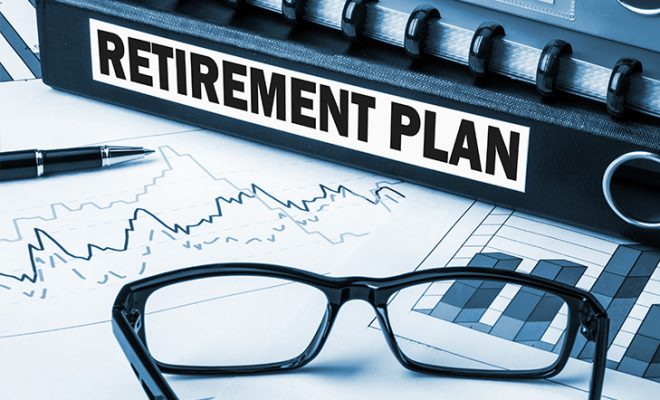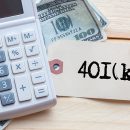7 Simple Ways to Estimate Your Retirement Expenses

Saving for retirement can be a little tricky, primarily because you save for a time way ahead in the future. Given the changing times, an increased dependency on expensive gadgets and technology, inflation, the need for material possessions, rising costs of healthcare, etc. it can be difficult to gauge the extent of your expenses in retirement. The lifestyle that you lead today is likely to alter over the course of time, and so will your income. This may lead to an insufficient retirement corpus and a restricted way of living. However, there are some ways to ascertain your future needs.
Here are 7 simple ways to estimate your retirement expenses.
- Make a list of your current expenditures to estimate your retirement expenses
Your current expenses and your retirement expenses are likely to have many things in common. Things, such as food, clothing, utilities, etc., are recurring costs that will remain constant regardless of your age. It helps to take account of these expenses to get an idea of what you might need when you are older. You can do this by making a list of expenses that figure in your budget every month. In addition to essentials, you may also be currently paying insurance premiums, loan repayments, or contributing to a retirement savings account. These expenses would not trouble you in your retirement, but it still helps to take them into consideration as this can provide an extra financial cushion for the unexpected costs that you will encounter in your retirement, such as healthcare costs, long term care costs, travel expenses, etc. - Understand the tax liability of your income and investments on your retirement budget
You will be taxed in retirement depending on the investments and savings you have. So, if you invest in a Roth Individual Retirement Account (IRA), your qualified withdrawals in retirement will be tax-free. However, if you invest in a traditional 401(k) account, your withdrawals will be taxed as per the prevailing income tax rate. In this case, your withdrawal will be added to your yearly income and you will pay tax based on the income tax slab you fall into for that specific financial year. Considering the fact that most people start contributing to retirement accounts much earlier in their lives, you can predict your tax expenditure in retirement and accordingly pick an instrument for saving. The fewer taxes you pay in retirement, the lower will be the outflow of money. - Count all your sources of income to gauge total income in retirement to plan retirement expenses
Retirement income can come from your savings, investment returns, rent from a property, estate inheritance, Social Security benefits, etc. It helps to count all your probable income sources to gauge your total income. Once you know your income, you can calculate the amount of money you should be spending in your retirement. A popular rule is the 4% rule. According to this, you can withdraw up to 4% of your funds from your retirement savings in a year. This can help you stay streamlined regardless of how much you are able to save in total. However, keep in mind that you may have to account for inflation every year. - Accommodate inflation to estimate the cost of living in your retirement expenses
Inflation will bring in a massive change to your budget over the years, so making it a part of your retirement calculations is crucial. However, since the future is unpredictable, it can be confusing to ascertain the precise percentage of inflation over the years. An effective way to calculate this can be by looking at the past ten or more years. The rate of inflation of the past can help you predict the future. Although this will remain an approximate figure, it can still enable you to determine how much a thing can cost in retirement, so you can save accordingly.SPONSORED WISERADVISOR
- Look at the needs of your family to account for retirement expenses
If you are the chief earning member in your family or have a few family members who are financially dependent on you, you may have to save extra for them. If your children are grown up by the time you retire, you may not have to fend for them. However, if they are still dependent on you, you may need an additional pool of funds for their expenses. The healthcare costs in case of a physically or mentally disabled child can also be substantial. Moreover, if you are looking after the expenses of your spouse, parents or a sibling, you may have to think about their ageing needs and account for that into your retirement expenses too. - Plan for the unexpected financial adversity in your retirement expenses
An emergency fund is as important in retirement as during your working years. Since you would be living your retired life on limited sources of income, it becomes essential to be prepared for any unexpected financial adversity that may come your way. This can include health emergencies, home repairs, or even helping a child or your spouse with money troubles. Having an emergency fund can allow you to stay afloat in times of uncertainties and lead a stress-free life. When you calculate your retirement expenses, make sure to factor in an emergency fund too. - Use an online retirement calculator to help plan your retirement expenses
If determining your retirement needs manually seems like a daunting task, you can always use an online retirement calculator. This can help you understand your retirement requirements. You can check on how much you need for retirement, how retirement can impact your living expenses, and whether or not your current retirement savings are sufficient. These online calculators can provide you with an accurate estimate of your retirement expenses based on a few simple questions.
To sum it up
Estimating your retirement expenses is important to make sure that you do not run out of funds later. The older you get, the harder it can be to earn money. Hence, accounting for all possibilities well in advance becomes crucial. You can manually take account of your probable future expenses, use an online retirement savings calculator or consult a financial advisor to help you chalk out a suitable retirement planning strategy.
If you need some professional guidance on retirement planning, you can use our free tool to compare up to 3 financial advisors and find the best advisor for you that meets your needs.











